Alcohol cleaning hacks – who knew that your favorite happy hour ingredient could be your new best friend when it comes to tackling household chores? I’m always on the lookout for clever, cost-effective ways to keep my home sparkling, and let me tell you, I’ve stumbled upon some game-changing secrets using something you probably already have in your liquor cabinet!
For centuries, alcohol, in various forms, has been used for its disinfectant properties. Think about it – from ancient civilizations using fermented beverages for medicinal purposes to modern-day hand sanitizers, alcohol’s ability to kill germs and dissolve grime is well-documented. But its cleaning potential goes far beyond just sanitizing your hands.
Let’s face it, nobody enjoys spending hours scrubbing and scouring. We all crave a clean and healthy living space, but time is precious. That’s where these alcohol cleaning hacks come in. They’re quick, easy, and surprisingly effective, saving you both time and money. Imagine effortlessly removing stubborn stains, banishing unpleasant odors, and disinfecting surfaces with just a few simple steps. I’m excited to share these tips and tricks with you, so you can transform your cleaning routine and reclaim your weekends!
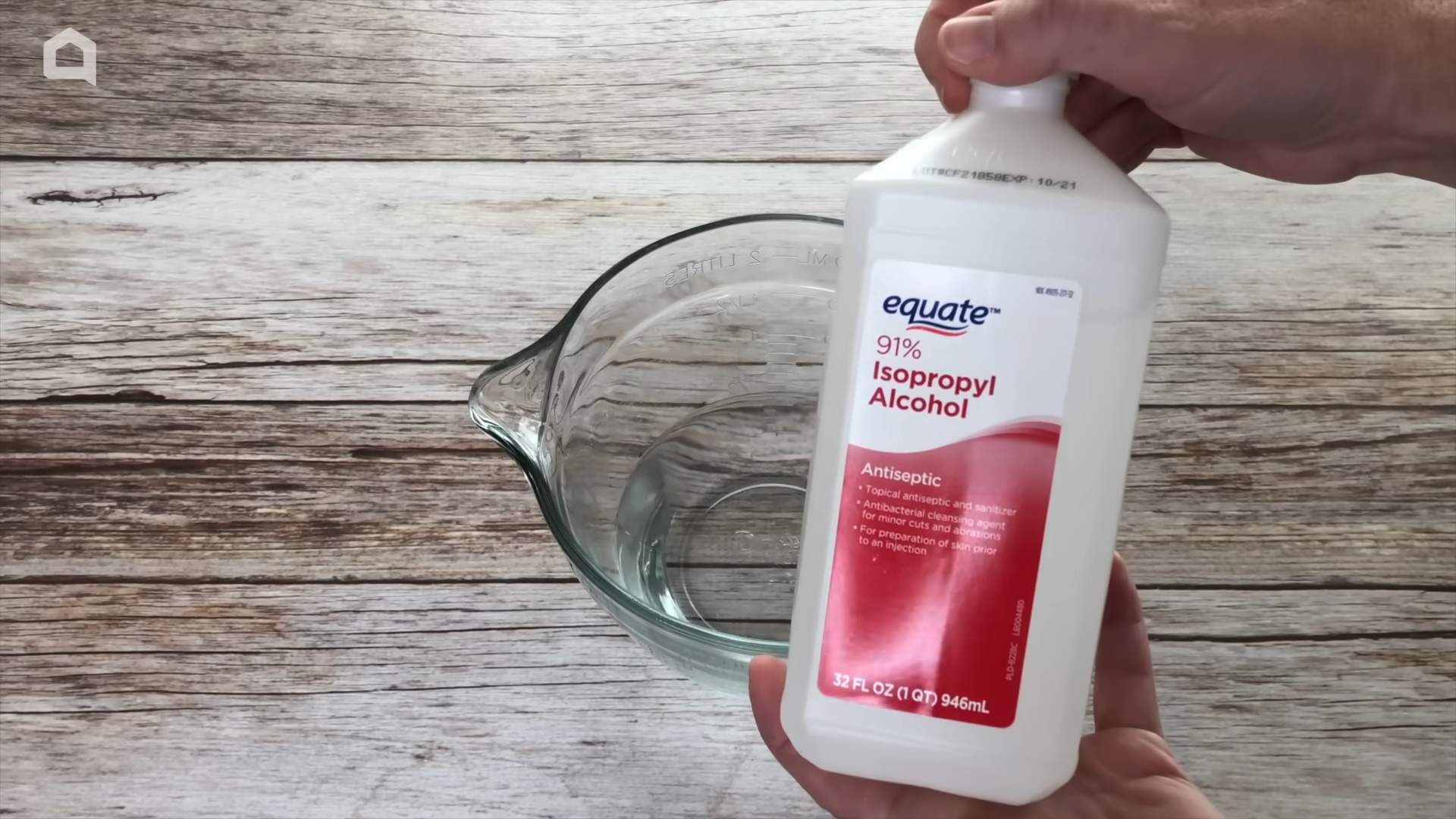
DIY Alcohol Cleaning Hacks: Your Guide to a Sparkling Home
Hey everyone! I’m so excited to share some of my favorite cleaning hacks using something you probably already have in your home: rubbing alcohol (isopropyl alcohol). It’s not just for first aid; this stuff is a cleaning powerhouse! It’s a fantastic disinfectant, degreaser, and even a stain remover. Plus, it’s relatively inexpensive, making it a budget-friendly cleaning solution. Let’s dive into some amazing ways you can use rubbing alcohol to clean your home.
General Tips Before We Start
Before we get into the specific hacks, here are a few general tips to keep in mind:
* Ventilation is Key: Always work in a well-ventilated area when using rubbing alcohol. Open windows or turn on a fan to avoid inhaling too many fumes.
* Test First: Before applying rubbing alcohol to a large area, test it on a small, inconspicuous spot to ensure it doesn’t damage or discolor the surface. This is especially important for delicate materials like painted walls or certain fabrics.
* Dilution: While rubbing alcohol can be used straight, diluting it with water can sometimes be more effective and gentler on surfaces. A common dilution ratio is 1:1 (equal parts alcohol and water).
* Safety First: Keep rubbing alcohol away from heat and open flames, as it is flammable. Also, keep it out of reach of children and pets.
* Different Concentrations: Rubbing alcohol comes in different concentrations (e.g., 70%, 91%, 99%). For most cleaning purposes, 70% is sufficient and often preferred as it contains more water, which helps it penetrate surfaces better. However, for electronics, a higher concentration like 91% or 99% is recommended as it evaporates more quickly and leaves less residue.
Cleaning Electronics
Electronics are notorious for collecting dust, fingerprints, and grime. Rubbing alcohol is a safe and effective way to clean them without damaging sensitive components.
What You’ll Need:
* Rubbing alcohol (91% or 99% recommended)
* Microfiber cloths
* Cotton swabs
* Small spray bottle (optional)
Step-by-Step Instructions:
1. Power Down: Always turn off and unplug the electronic device before cleaning it. This is crucial for safety and prevents damage.
2. Prepare Your Solution: If you’re using a spray bottle, pour a small amount of rubbing alcohol into it. Alternatively, you can simply dampen a microfiber cloth with rubbing alcohol.
3. Wipe Down Surfaces: Gently wipe down the surfaces of your electronic devices with the dampened microfiber cloth. For screens, use a light touch to avoid scratching.
4. Clean Hard-to-Reach Areas: Use cotton swabs dipped in rubbing alcohol to clean crevices, ports, and other hard-to-reach areas. Be careful not to get any liquid inside the device.
5. Dry Thoroughly: Allow the surfaces to air dry completely before turning the device back on. The alcohol should evaporate quickly, leaving no residue.
Disinfecting Surfaces
Rubbing alcohol is an excellent disinfectant, killing germs and bacteria on various surfaces.
What You’ll Need:
* Rubbing alcohol (70% is ideal)
* Spray bottle
* Microfiber cloths
Step-by-Step Instructions:
1. Prepare Your Solution: Pour rubbing alcohol into a spray bottle. You can use it undiluted for maximum disinfecting power.
2. Spray Surfaces: Spray the surfaces you want to disinfect, such as countertops, doorknobs, light switches, and toilet seats.
3. Let it Sit: Allow the alcohol to sit on the surface for at least 30 seconds to kill germs effectively.
4. Wipe Clean: Wipe the surface clean with a microfiber cloth.
Removing Permanent Marker
Accidentally got permanent marker on a surface? Don’t panic! Rubbing alcohol can often remove it.
What You’ll Need:
* Rubbing alcohol
* Cotton balls or microfiber cloth
* Clean cloth
Step-by-Step Instructions:
1. Dampen a Cotton Ball: Dampen a cotton ball or a corner of a microfiber cloth with rubbing alcohol.
2. Blot the Stain: Gently blot the permanent marker stain with the dampened cotton ball or cloth. Avoid rubbing, as this can spread the stain.
3. Repeat as Needed: Repeat the blotting process until the stain starts to lift. You may need to use several cotton balls or cloths.
4. Wipe Clean: Once the stain is removed, wipe the area clean with a damp cloth to remove any remaining alcohol residue.
Important Note: This method works best on non-porous surfaces like plastic, metal, and glass. It may not be as effective on porous surfaces like fabric or wood. Always test in an inconspicuous area first.
Cleaning Mirrors and Glass
Say goodbye to streaks and smudges! Rubbing alcohol can leave your mirrors and glass sparkling clean.
What You’ll Need:
* Rubbing alcohol
* Water
* Spray bottle
* Microfiber cloths
Step-by-Step Instructions:
1. Prepare Your Solution: Mix equal parts rubbing alcohol and water in a spray bottle.
2. Spray the Surface: Spray the mirror or glass surface with the solution.
3. Wipe Clean: Wipe the surface clean with a microfiber cloth. Use a clean, dry microfiber cloth to buff the surface for a streak-free shine.
Removing Sticky Residue
Stubborn sticky residue from stickers, tape, or labels can be a pain to remove. Rubbing alcohol to the rescue!
What You’ll Need:
* Rubbing alcohol
* Cotton balls or microfiber cloth
* Plastic scraper (optional)
Step-by-Step Instructions:
1. Apply Alcohol: Soak a cotton ball or microfiber cloth with rubbing alcohol and apply it to the sticky residue.
2. Let it Sit: Allow the alcohol to sit on the residue for a few minutes to soften it.
3. Scrape (if needed): If the residue is particularly stubborn, use a plastic scraper to gently scrape it away. Be careful not to scratch the surface.
4. Wipe Clean: Wipe the area clean with a damp cloth to remove any remaining alcohol and residue.
Cleaning Jewelry
Give your jewelry a quick shine with rubbing alcohol.
What You’ll Need:
* Rubbing alcohol
* Small bowl
* Soft-bristled toothbrush (optional)
* Clean cloth
Step-by-Step Instructions:
1. Soak Jewelry: Place your jewelry in a small bowl filled with rubbing alcohol.
2. Let it Soak: Allow the jewelry to soak for about 10-15 minutes.
3. Scrub (if needed): If your jewelry is particularly dirty, use a soft-bristled toothbrush to gently scrub away any grime.
4. Rinse and Dry: Rinse the jewelry with water and dry it thoroughly with a clean cloth.
Important Note: This method is generally safe for most jewelry, but avoid using it on delicate stones or pearls, as alcohol can damage them.
Freshening Up Shoes
Rubbing alcohol can help eliminate odors and disinfect your shoes.
What You’ll Need:
* Rubbing alcohol
* Spray bottle
* Microfiber cloth
Step-by-Step Instructions:
1. Prepare Your Solution: Pour rubbing alcohol into a spray bottle.
2. Spray Inside Shoes: Spray the inside of your shoes with rubbing alcohol.
3. Wipe Down Exterior: Wipe down the exterior of your shoes with a microfiber cloth dampened with rubbing alcohol.
4. Air Dry: Allow your shoes to air dry completely before wearing them.
Cleaning Blinds
Cleaning blinds can be tedious, but rubbing alcohol can make the job easier.
What You’ll Need:
* Rubbing alcohol
* Water
* Spray bottle
* Microfiber cloth or old sock
Step-by-Step Instructions:
1. Prepare Your Solution: Mix equal parts rubbing alcohol and water in a spray bottle.
2. Spray Blinds: Lightly spray the blinds with the solution.
3. Wipe Clean: Wipe each slat of the blinds with a microfiber cloth or an old sock. For easier cleaning, you can put the sock on your hand and use it like a glove.
4. Dry: Allow the blinds to air dry completely.
Removing Hairspray Buildup
Hairspray can leave a sticky residue on surfaces like bathroom mirrors and countertops. Rubbing alcohol can easily remove it.
What You’ll Need:
* Rubbing alcohol
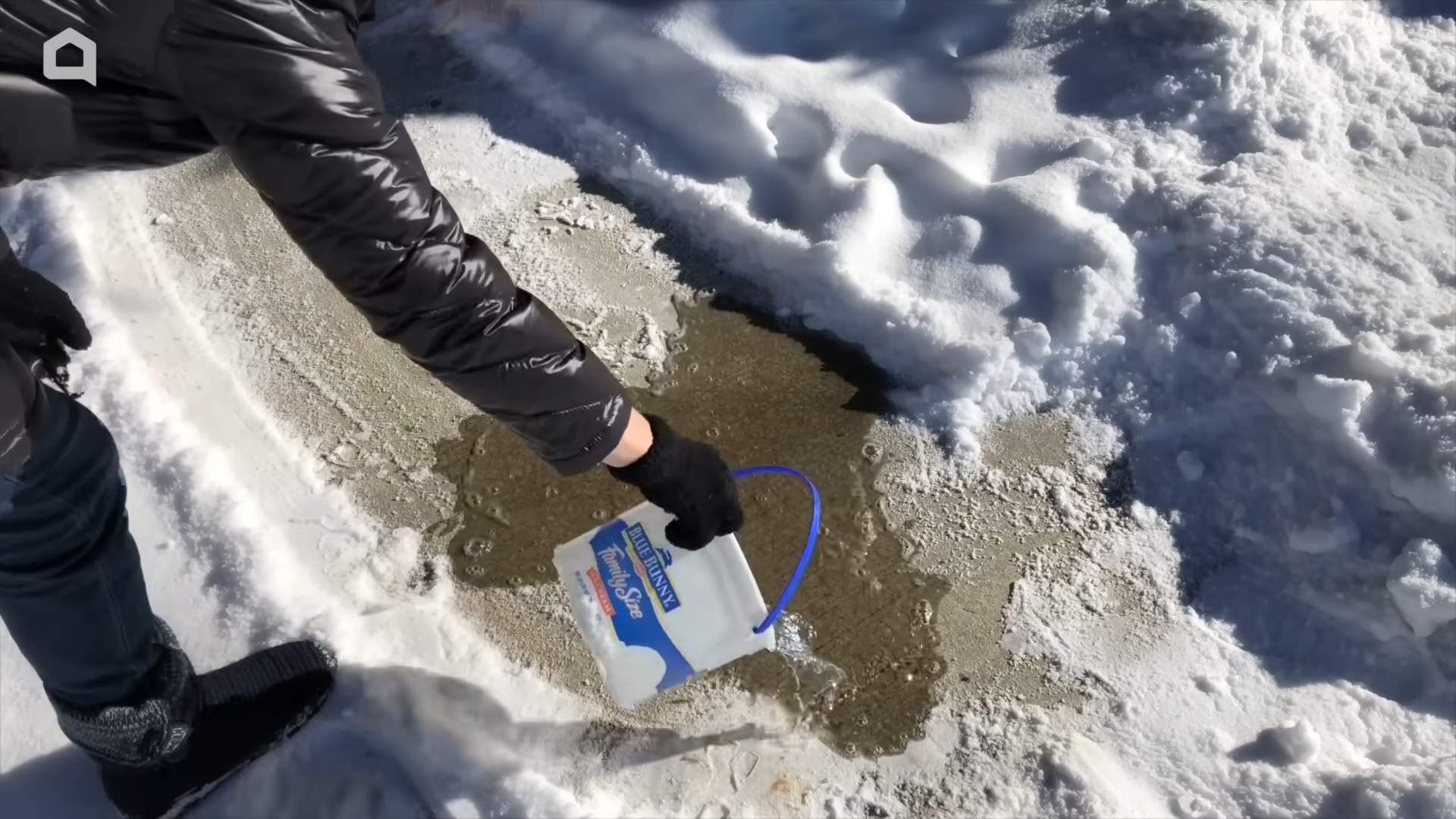
Conclusion
So, there you have it! This simple yet incredibly effective alcohol cleaning hack is a game-changer for anyone looking to streamline their cleaning routine and achieve sparkling results with minimal effort. We’ve explored how isopropyl alcohol, a readily available and inexpensive resource, can be transformed into a powerful cleaning agent capable of tackling a wide range of household messes. From disinfecting surfaces to removing stubborn stains and even reviving dull electronics, the versatility of this DIY cleaning solution is truly remarkable.
Why is this a must-try? Because it’s efficient, cost-effective, and environmentally conscious. You’re reducing your reliance on harsh chemical cleaners that can be harmful to your health and the planet. Plus, the satisfaction of creating your own cleaning solution and witnessing its effectiveness firsthand is an added bonus.
But the beauty of this alcohol cleaning hack lies not only in its simplicity but also in its adaptability. Feel free to experiment with different concentrations of isopropyl alcohol depending on the task at hand. For delicate surfaces, a lower concentration (around 70%) is ideal, while tougher stains and disinfecting tasks may benefit from a higher concentration (90% or higher).
Consider adding a few drops of your favorite essential oil to the mixture for a pleasant scent. Lavender, lemon, and eucalyptus are excellent choices that not only add fragrance but also possess their own cleaning and disinfecting properties. You can also infuse the alcohol with citrus peels for a natural, zesty aroma and added cleaning power.
Another variation involves creating alcohol-based cleaning wipes. Simply soak paper towels or reusable cloths in the alcohol solution and store them in an airtight container. These wipes are perfect for quick cleanups and disinfecting on the go.
Don’t be afraid to get creative and tailor this alcohol cleaning hack to your specific needs and preferences. The possibilities are endless!
We are confident that once you try this DIY cleaning trick, you’ll be amazed by its effectiveness and versatility. It’s a simple, affordable, and eco-friendly way to keep your home clean and healthy.
Now, it’s your turn! We encourage you to give this alcohol cleaning hack a try and see the results for yourself. Share your experiences, tips, and variations in the comments below. We’d love to hear how this cleaning solution has transformed your cleaning routine. Let’s build a community of DIY cleaning enthusiasts and share our knowledge and experiences to make cleaning a little easier and more enjoyable for everyone. What are you waiting for? Grab that bottle of isopropyl alcohol and get cleaning!
Frequently Asked Questions (FAQs)
What exactly is isopropyl alcohol, and why is it a good cleaner?
Isopropyl alcohol, also known as rubbing alcohol, is a chemical compound with the formula C3H8O. It’s a colorless, flammable liquid with a strong odor. Its effectiveness as a cleaner stems from its ability to dissolve a wide range of substances, including grease, oil, and dirt. It also acts as a disinfectant, killing bacteria, viruses, and fungi. The alcohol denatures the proteins and lipids that make up these microorganisms, effectively destroying them. Furthermore, it evaporates quickly, leaving surfaces clean and dry without residue.
What concentration of isopropyl alcohol should I use for cleaning?
The ideal concentration depends on the cleaning task. For general cleaning and disinfecting, a 70% isopropyl alcohol solution is often recommended. This concentration is effective at killing germs while also allowing the alcohol to stay in contact with the surface for a longer period, which is crucial for disinfection. For tougher stains or situations where a faster evaporation rate is desired, a 90% or higher concentration can be used. However, be mindful that higher concentrations can be more flammable and may damage certain surfaces. Always test in an inconspicuous area first.
Is isopropyl alcohol safe to use on all surfaces?
While isopropyl alcohol is generally safe for many surfaces, it’s essential to exercise caution and test it in an inconspicuous area before applying it to the entire surface. Avoid using it on delicate or porous materials like painted surfaces, shellac, lacquer, rayon, acetate, and silk, as it can damage or discolor them. It’s also not recommended for use on certain types of plastics, as it can cause them to become brittle or cloudy. Always check the manufacturer’s recommendations for cleaning specific surfaces.
Can I mix isopropyl alcohol with other cleaning products?
It’s generally not recommended to mix isopropyl alcohol with other cleaning products, especially bleach. Mixing isopropyl alcohol with bleach can create toxic fumes that can be harmful to your health. It’s best to use isopropyl alcohol on its own or in combination with water and essential oils. If you’re unsure about mixing it with another product, err on the side of caution and avoid it.
How should I store isopropyl alcohol safely?
Isopropyl alcohol is flammable, so it’s crucial to store it safely. Keep it in a tightly sealed container in a cool, dry, and well-ventilated area away from heat, sparks, and open flames. Store it out of reach of children and pets. Avoid storing it near other flammable materials or oxidizing agents.
What are some specific cleaning tasks that isopropyl alcohol is particularly good for?
Isopropyl alcohol is excellent for a variety of cleaning tasks, including:
* Disinfecting surfaces like countertops, doorknobs, and light switches.
* Removing sticky residue from labels and stickers.
* Cleaning electronics like smartphones, tablets, and keyboards.
* Removing ink stains from clothing and other surfaces.
* Cleaning and disinfecting makeup brushes.
* Removing water spots from chrome and stainless steel.
* Cleaning eyeglasses and sunglasses.
Are there any safety precautions I should take when using isopropyl alcohol?
Yes, it’s essential to take certain safety precautions when using isopropyl alcohol:
* Work in a well-ventilated area to avoid inhaling the fumes.
* Wear gloves to protect your skin from irritation.
* Avoid contact with your eyes. If contact occurs, rinse thoroughly with water.
* Keep isopropyl alcohol away from heat, sparks, and open flames.
* Do not ingest isopropyl alcohol.
* Keep out of reach of children and pets.
Can I use isopropyl alcohol to clean my hands instead of hand sanitizer?
While isopropyl alcohol can be used to disinfect surfaces, it’s not the best option for cleaning your hands. Frequent use of isopropyl alcohol on your hands can dry out your skin and cause irritation. Hand sanitizers are formulated with emollients to help moisturize the skin and prevent dryness. If you don’t have hand sanitizer available, washing your hands with soap and water is the most effective way to remove germs.
How can I make alcohol cleaning wipes?
Making alcohol cleaning wipes is easy! You’ll need:
* Paper towels or reusable cloths
* Isopropyl alcohol (70% or higher concentration)
* An airtight container
Simply fold the paper towels or cloths and place them in the container. Pour enough isopropyl alcohol over the towels to saturate them. Seal the container tightly. When you need a wipe, simply pull one out and use it to clean and disinfect surfaces.
What are some eco-friendly alternatives to isopropyl alcohol for cleaning?
While isopropyl alcohol is a relatively safe and effective cleaner, there are some eco-friendly alternatives you can consider:
* Vinegar: A natural disinfectant and degreaser.
* Baking soda: A mild abrasive cleaner that can be used to scrub surfaces.
* Lemon juice: A natural cleaner and deodorizer.
* Hydrogen peroxide: A disinfectant and stain remover.
* Essential oils: Some essential oils, like tea tree and eucalyptus, have antibacterial and antifungal properties.
Remember to research the best uses for each alternative and test them on an inconspicuous area before applying them to the entire surface.
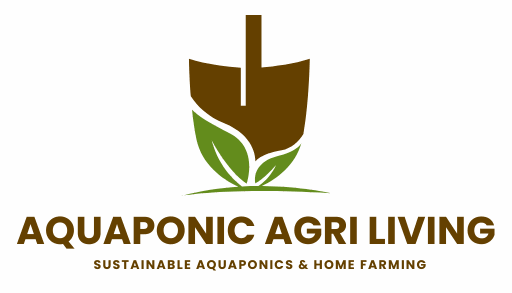
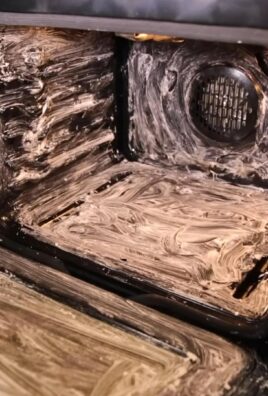
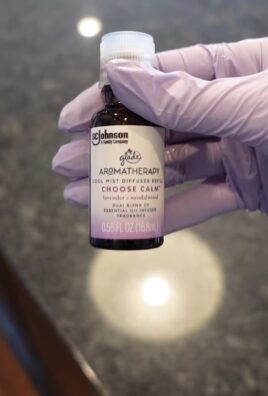
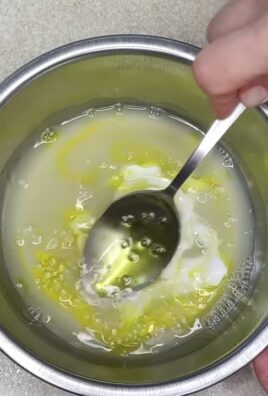
Leave a Comment